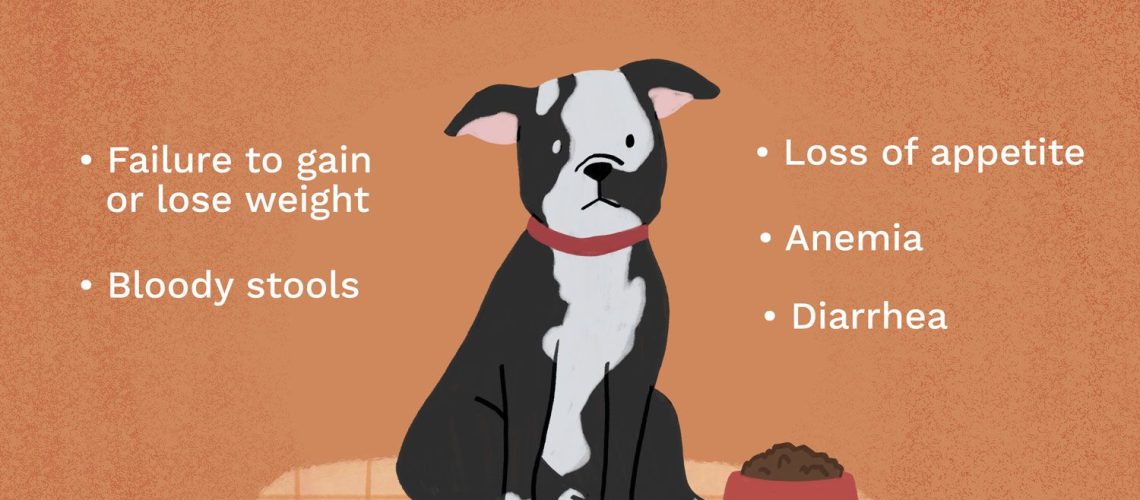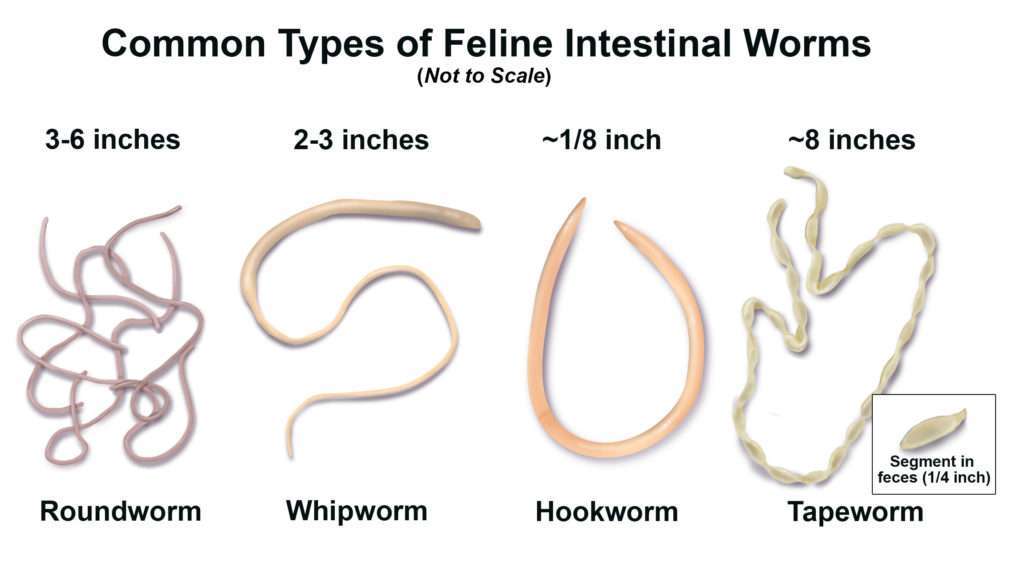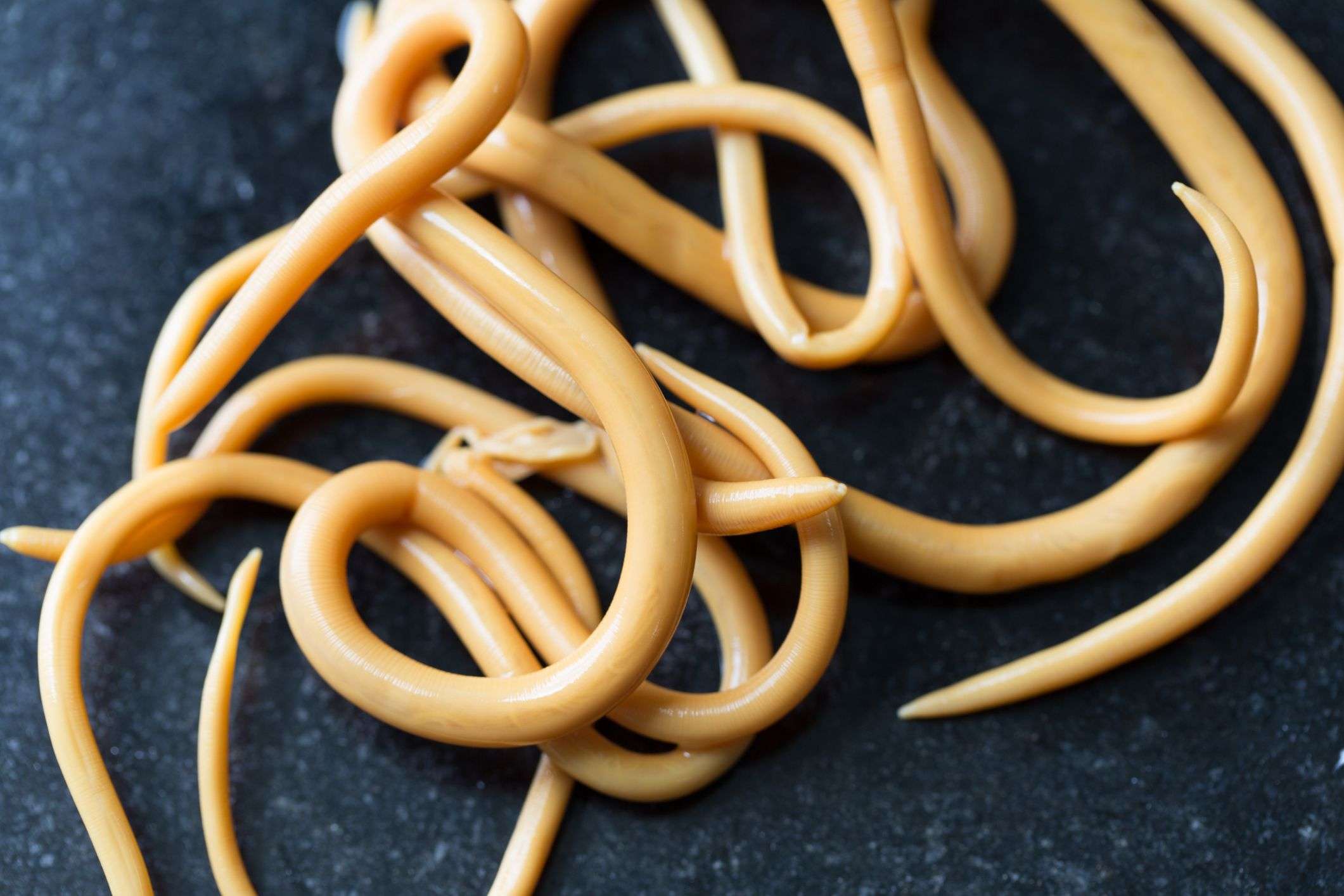Hookworms in puppies are a common and concerning issue that pet owners should be aware of.
Key Takeaways:
- Hookworms are a common parasite found in puppies.
- They can be transmitted through the mother's milk or by ingesting contaminated soil or feces.
- Hookworm infestations can cause anemia, weight loss, and diarrhea in puppies.
- Regular deworming and proper hygiene practices are essential to prevent hookworm infections in puppies.
- Veterinary guidance should be sought for diagnosis and treatment of hookworm infestations in puppies.
What are hookworms and how do they affect puppies?
Hookworms are a type of parasitic worm that can infect puppies. These tiny worms attach themselves to the lining of the puppy's intestines and feed on their blood. This can cause anemia, which is when there is not enough healthy red blood cells in the body. Anemia can make the puppy weak and tired, and it can also lead to other health problems.
When a puppy has a hookworm infection, they may have symptoms like diarrhea, weight loss, and a poor appetite. Their fur may also look dull and they may have pale gums. If left untreated, hookworms can cause serious damage to a puppy's health.
How do puppies get infected with hookworms?
Puppies can get infected with hookworms in several ways:
- From their mother: Puppies can become infected with hookworms before they are even born. The worms can be passed from the mother dog to her puppies through her milk or through the placenta.
- Through contaminated soil: Hookworm larvae (young worms) live in soil that has been contaminated by infected dogs' feces. When a puppy walks or plays in this soil, the larvae can penetrate their skin and enter their body.
- Ingesting infected prey: If a puppy eats an animal that is already infected with hookworms, they can become infected too.
Preventing hookworms in puppies: What can be done?
To prevent hookworm infections in puppies, there are several steps that can be taken:
- Deworming medication: Puppies should be given deworming medication regularly as recommended by a veterinarian. This medication helps to kill any existing hookworms and prevent new infections.
- Clean living environment: It is important to keep the puppy's living area clean and free from feces. Regularly removing feces and disinfecting the area can help prevent the spread of hookworm larvae.
- Avoiding contaminated soil: Puppies should be kept away from areas where there may be contaminated soil, such as dog parks or areas where other dogs frequently relieve themselves.
- Regular veterinary check-ups: Taking the puppy to the veterinarian for regular check-ups can help detect and treat any hookworm infections early on.
How do puppies get infected with hookworms?
Hookworm infection in puppies typically occurs through the ingestion or skin penetration of hookworm larvae. The most common route of transmission is through contact with contaminated soil or feces, as the larvae can survive in these environments for extended periods. Puppies may accidentally ingest the larvae while exploring or playing in contaminated areas, or they may become infected by walking on contaminated soil and having the larvae penetrate their skin.
Another potential source of hookworm infection in puppies is through their mother. Hookworm larvae can be transmitted to puppies during pregnancy or through nursing, as the larvae migrate from the mother's tissues to her milk. This means that even if a puppy has not been exposed to contaminated environments, they can still acquire hookworms from their mother.
Preventing hookworms in puppies: What can be done?
Preventing hookworm infection in puppies involves several key measures:
Vaccination:
- Ensuring that puppies receive appropriate vaccinations against common parasites, including hookworms, as recommended by a veterinarian.
Clean living environment:
- Maintaining a clean and sanitary living environment for puppies, regularly removing feces from their designated area and keeping them away from potentially contaminated soil.
Deworming:
- Scheduling regular deworming treatments for puppies, especially during their early stages of development when they are more susceptible to infections.
Recognizing the symptoms of hookworm infection in puppies
The symptoms of hookworm infection in puppies can vary depending on the severity of the infestation and the individual puppy's immune response. Common signs to watch out for include:
1. Gastrointestinal symptoms:
- Diarrhea
- Weight loss
- Poor appetite
- Bloody or dark stools
2. Anemia-related symptoms:
- Pale gums and mucous membranes
- Lethargy and weakness
- Rapid breathing or increased heart rate
- Fainting or collapse in severe cases
Are hookworms dangerous for puppies? Understanding the risks
Hookworms can pose significant health risks to puppies if left untreated. The parasites attach themselves to the intestinal lining, causing inflammation, bleeding, and nutrient deficiencies. This can lead to severe anemia, stunted growth, and compromised immune function.
In young puppies with weaker immune systems, hookworm infections can be particularly dangerous and even life-threatening. The loss of blood caused by hookworms can result in a condition known as "puppy anemia," which requires immediate veterinary attention.
Additionally, if a pregnant dog is infected with hookworms, the larvae can be transmitted to her unborn puppies through the placenta or during nursing. This early exposure can have long-term effects on the puppies' health and development.
Diagnosing hookworm infections in puppies: What to look for
If you suspect your puppy may have a hookworm infection, it is important to seek veterinary assistance for an accurate diagnosis. A veterinarian will typically perform a combination of the following diagnostic tests:
Fecal examination:
A fecal sample will be collected from your puppy and examined under a microscope for the presence of hookworm eggs or larvae.
Blood tests:
Blood tests may be conducted to assess your puppy's red blood cell count and detect signs of anemia or other abnormalities.
Clinical evaluation:
The veterinarian will also evaluate your puppy's overall health and consider their symptoms, medical history, and potential exposure to hookworms.
Treating hookworm infection in puppies: Steps to take
Once a hookworm infection is confirmed in a puppy, prompt treatment is essential to prevent further complications. The following steps are typically taken:
Deworming medication:
The veterinarian will prescribe appropriate deworming medication specifically targeting hookworms. This medication helps eliminate the adult worms from the intestines.
Supportive care:
In cases of severe anemia or dehydration, supportive care such as fluid therapy or blood transfusions may be necessary to stabilize the puppy's condition.
Preventive measures:
To prevent re-infection and protect against future hookworm infestations, it is crucial to follow proper hygiene practices, maintain a clean living environment, and adhere to regular deworming schedules recommended by the veterinarian.
Can humans get infected with hookworms from puppies? Preventive measures
While it is possible for humans to become infected with certain species of hookworms found in puppies, it is relatively rare. The most common route of transmission is through direct skin contact with contaminated soil or feces. To minimize the risk of human infection, it is important to take preventive measures such as:
Good hygiene practices:
- Frequent handwashing with soap and water after handling puppies or cleaning up after them.
- Avoiding direct contact with soil or feces potentially contaminated with hookworm larvae.
Wearing protective gloves:
- If you need to handle soil or feces that may be contaminated, wearing gloves can provide an additional barrier of protection.
Potential long-term effects of hookworm infection on puppies' health
Hookworm infections in puppies can have long-term effects on their health if not properly treated. Some potential consequences include:
Delayed growth and development:
Severe hookworm infestations can lead to stunted growth and delayed physical and cognitive development in puppies.
Weakened immune system:
Chronic hookworm infections can compromise a puppy's immune system, making them more susceptible to other diseases and infections.
Anemia-related complications:
Prolonged hookworm infestations can result in chronic anemia, which can cause fatigue, weakness, and decreased quality of life for the affected puppy.
Gastrointestinal issues:
The inflammation and damage caused by hookworms in the intestines can lead to long-term digestive problems, including chronic diarrhea and malabsorption of nutrients.
It is important to note that this information is provided as a general overview and should not replace professional veterinary advice. If you suspect your puppy may have a hookworm infection or have any concerns about their health, consult with a veterinarian for proper diagnosis and treatment.
| In Conclusion | |
| Topic: | Hookworms in Puppies |
| Key Takeaways: | 1. Hookworms are a common parasitic infection in puppies. 2. They can cause various health issues and even be fatal if left untreated. 3. Regular deworming and proper hygiene practices are essential for prevention. 4. Early detection and treatment are crucial for the well-being of your puppy. |
Remember, by staying proactive about your puppy's health and following appropriate preventive measures, you can keep them safe from hook
Can a puppy survive hookworms?It is not unusual for young puppies to pass away as a result of severe hookworm infections. Symptoms such as skin irritation and itching, particularly in the paws, caused by the larvae digging into and moving along the skin, may indicate a heavily infested environment. In serious cases, dogs may also experience coughing. How serious is hookworm in puppies?Hookworms are a type of parasite that infects the intestines and can lead to anemia, weakness, lung damage, and pneumonia. Although adults may not always display symptoms, hookworms pose a significant threat to young puppies and can have lasting effects on their growth and even result in death. How long does it take to get rid of hookworms in puppies?The typical duration of treatment for hookworms in dogs is approximately 2-3 weeks. This treatment involves the use of an antiparasitic medication, such as fenbendazole, moxidectin, or pyrantel, which is given orally. Additional treatments may include IV fluids and electrolytes if the dog is experiencing weakness, as well as iron supplements to address anemia. Do I need to clean my house if my dog has hookworms?Hookworm infection is typically diagnosed using a method called fecal floatation. Treatment for this infection is usually simple and effective, involving the use of a general dewormer and cleaning the environment. In indoor settings, it is recommended to vacuum the floor and clean it with a multipurpose cleaner. Can I get hookworm from my dog licking me?Infections such as hookworm, roundworm, giardia, and salmonella can be transmitted between humans and dogs through licking. However, viruses typically only affect one species, so you cannot give your dog a cold and they cannot give you their cough. What do hookworms look like in puppy poop?There are four primary types of worms that can be found in dog feces: hookworms, whipworms, roundworms, and tapeworms. Hookworms are small worms with hook-shaped mouthparts. Whipworms resemble small pieces of thread that are thicker at one end. Roundworms have a spaghetti-like appearance and can reach several inches in length.
More Reads
Dr. Clara Bennett
Hello, fellow pet enthusiasts! I'm Dr. Clara Bennett, your go-to expert on all things pets. With a background in veterinary medicine and a passion for nutrition, I've spent years diving deep into the world of cats, dogs, birds, horses, and the products that keep them thriving. From the English countryside, I've witnessed the magic of animals and am here to share my knowledge, ensuring your pets receive the best care. Together, let's master the art of pet care!
All Posts »
Next Steps In Mastering Cat CareNext Steps In Mastering Dog CareJoin Our NewsletterSubscribe to receive our latest updates in your inbox! | |
















